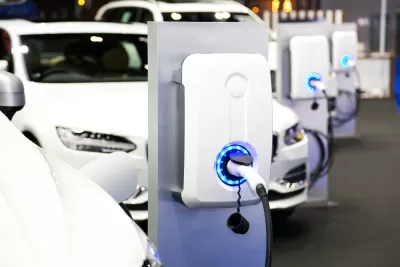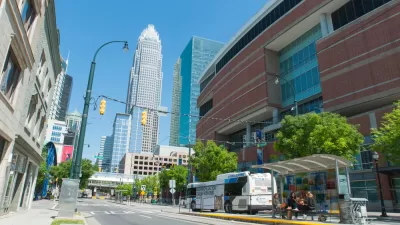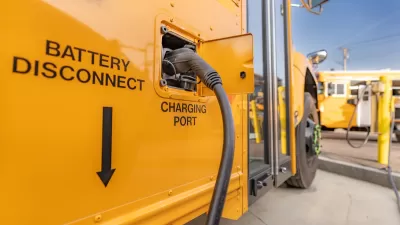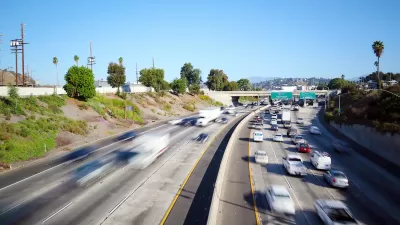There may be plenty of reasons to hail the rise of electric vehicles, including California's policy to ban the sale of gas-powered cars by 2035. But what may be good for the air is not necessarily good for cities.

Economists, energy analysts, and even psychologists will debate and anticipate the impacts of a gas-free future. I expect it will, on balance, be far better than the status quo. But tradeoffs will be made (oil drilling for cobalt and nickel mining, for instance) and unintended consequences will arise, as they always do with major technological shifts.
Back in 2005, the prospect of widespread use of electric vehicles—much less ones that could outdrive the gnarliest hot rods of the day—was, if not unthinkable, at least implausible. That year, Californian drivers emitted roughly 180 million tons of carbon into our 1.01 million cubic miles of troposphere.
California surely needs to reduce pollution. But, just as surely, it also needs to make nicer cities. The trouble with “nicer cities” is inherent in the phrase itself: it's vague, subjective, and debatable. Public policy loves metrics, though. The more definitive a measure, the better. If you can say what you want, you can figure out how to get it, and, later on, you can evaluate whether you've gotten what you want.
Cars are still cars, electric or not. They still take up space. They still require energy and infrastructure. They can still kill occupants and bystanders alike. They still make people lazy and antisocial. Walking, biking, rolling, scooting, and bus-riding are all preferable to lithium mining and highway-building if we want to be sustainable.
FULL STORY: The Internal-Combustion Car Did Us A Favor

Alabama: Trump Terminates Settlements for Black Communities Harmed By Raw Sewage
Trump deemed the landmark civil rights agreement “illegal DEI and environmental justice policy.”

Study: Maui’s Plan to Convert Vacation Rentals to Long-Term Housing Could Cause Nearly $1 Billion Economic Loss
The plan would reduce visitor accommodation by 25% resulting in 1,900 jobs lost.

Planetizen Federal Action Tracker
A weekly monitor of how Trump’s orders and actions are impacting planners and planning in America.

Wind Energy on the Rise Despite Federal Policy Reversal
The Trump administration is revoking federal support for renewable energy, but demand for new projects continues unabated.

Passengers Flock to Caltrain After Electrification
The new electric trains are running faster and more reliably, leading to strong ridership growth on the Bay Area rail system.

Texas Churches Rally Behind ‘Yes in God’s Back Yard’ Legislation
Religious leaders want the state to reduce zoning regulations to streamline leasing church-owned land to housing developers.
Urban Design for Planners 1: Software Tools
This six-course series explores essential urban design concepts using open source software and equips planners with the tools they need to participate fully in the urban design process.
Planning for Universal Design
Learn the tools for implementing Universal Design in planning regulations.
Caltrans
Smith Gee Studio
Institute for Housing and Urban Development Studies (IHS)
City of Grandview
Harvard GSD Executive Education
Toledo-Lucas County Plan Commissions
Salt Lake City
NYU Wagner Graduate School of Public Service





























